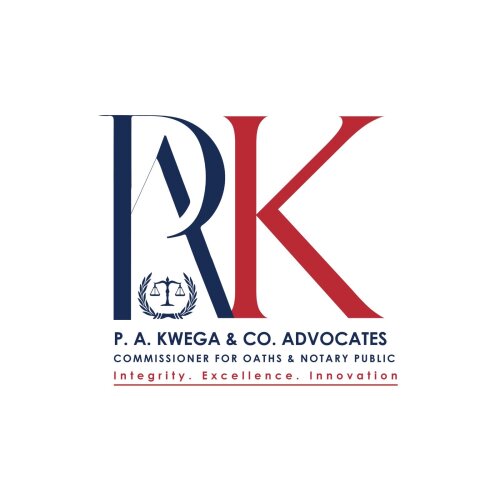Best Lawyers Near You
Share your needs with us, get contacted by law firms.
Free. Takes 2 min.
Or refine your search by selecting a city:
List of the best lawyers
Legal Questions answered by Lawyers
Browse our 1573 legal questions and read the lawyer answers, or ask your own questions for free.
- Hello Sir, my father served in the army for 6 years and then left the job, can he get pension?
- Hello Sir, my father served in the army for 6 years and then left the job, can he get pension?
-
Lawyer answer by Ishan Ganguly
1. Verification of "Ex-Serviceman" (ESM) Status The first step is to ensure he has his Ex-Servicemen Identity Card. Even without a pension, if he was "released" (not dismissed) after completing his specific engagement period, he is entitled to ESM status....
Read full answer - Can we start a class action in Moldova for a bank’s hidden fees charged to thousands of clients?
- My bank added “service” fees to my account without clear notice, and many other customers report the same thing. We all have similar contracts and the charges happened over the last two years. How do we check if a class action is possible in Moldova and what evidence is needed?
-
Lawyer answer by Brodsky Uskov Looper Reed & Partners
Good day. In order to provide a thorough and accurate assessment of your situation, the matter requires a detailed review of the relevant documents and circumstances. We would be pleased to offer our professional services, which would include: - analysis...
Read full answer - Controversia sul titolo dell'auto / Car Title Dispute
- Sono un americano che ha comprato un'auto in Italia; il mio ragazzo italiano ha registrato l'auto a suo nome in modo che potesse essere assicurata e guidata (da me). Ora sto cercando di esportare l'auto, ma lui non rilascerà il titolo e sta minacciando di vendere l'auto a meno che... Read more →
-
Lawyer answer by Nakashidze and Partners
Buongiorno, La ringraziamo per averci contattato. Potrebbe cortesemente indicarci in quale città si trova attualmente? Questa informazione è necessaria per valutare la competenza territoriale e le modalità di eventuale assistenza legale, nonché per organizzare i prossimi passi della comunicazione. Cordiali...
Read full answer
Legal Articles
Browse our 528 legal articles written by expert lawyers.
- INTERPOL Red Notices: When Are They Published?
- Interpol is widely perceived as a supranational police force empowered to investigate, arrest, and pursue individuals across borders. That perception is incorrect. Interpol conducts no investigations, determines neither guilt nor innocence, and possesses no arrest powers. It is neither a “global police authority” nor a judicial body issuing warrants against... Read more →
- Set Up a Foreign-Owned Corporation in the Philippines
- Setting Up a Foreign-Owned Domestic Corporation in the Philippines Key Takeaways Foreign investors can successfully incorporate and operate within the Philippine market by following highly structured national and local regulations. Successfully establishing your business requires understanding foreign ownership limits, meeting specific capital requirements, and navigating multiple government agencies. The Foreign... Read more →
- A Guide to Navigating Divorce Proceedings in South Africa
- Navigating Divorce Proceedings in South Africa Key Takeaways Ending a marriage in South Africa involves navigating specific legal channels, from deciding on child care to dividing assets based on your matrimonial property regime. Understanding the procedural differences between regional courts and the High Court can save you significant time, money,... Read more →
About Hiring a Lawyer
Hiring a lawyer can seem like a daunting task, but it can be broken down into manageable steps. First, identify the type of legal help you need, as lawyers often specialize in particular areas such as criminal law, family law, or corporate law. Next, research potential lawyers or law firms by reading reviews and checking credentials. It is important to set up consultations to discuss your case, understand their approach, and determine costs. Ensure the lawyer you choose is someone you feel comfortable communicating with and who clearly understands your legal needs.
Why You May Need a Lawyer
People may need legal help in various situations. Common scenarios include facing criminal charges, dealing with divorce or custody issues, drafting or contesting a will, handling business contracts, or pursuing compensation for accidents or injuries. A lawyer’s expertise is crucial in navigating these complex issues, ensuring legal rights are protected, and achieving the best possible outcomes.
Local Laws Overview
Understanding local laws is essential when seeking legal advice, as laws can vary significantly by jurisdiction. Key aspects include statutes of limitations, which dictate how long you have to file a lawsuit, zoning laws affecting real estate and business operations, and consumer protection laws guarding against unfair trade practices. Familiarize yourself with these regulations and how they specifically impact your legal situation.
Frequently Asked Questions
What should I bring to my initial consultation with a lawyer?
Bring any relevant documents, such as contracts, legal notices, or court papers. Prepare a list of questions and be ready to discuss the details of your case.
How are lawyers’ fees structured?
Lawyers may charge hourly rates, flat fees, or contingency fees (a percentage of the awarded amount in certain cases). Discuss the fee structure upfront.
Can I negotiate legal fees?
Yes, in many cases you can negotiate fees or set up payment plans. It’s important to discuss this before hiring a lawyer.
What is attorney-client privilege?
Attorney-client privilege is a legal principle that ensures confidentiality between a lawyer and their client, protecting communications from being disclosed without the client’s permission.
How do I know if a lawyer is qualified?
Check the lawyer’s credentials, such as their education, professional associations, and state bar membership. Reviews and testimonials can also provide insights into their reputation and expertise.
What happens if I can't afford a lawyer?
You may be eligible for legal aid, which offers free or low-cost legal services to individuals with limited income. Some lawyers also offer pro bono services.
What if I want to change my lawyer?
You have the right to change your lawyer if you believe your current lawyer is not representing you adequately. Be sure to review the terms of your agreement regarding any potential fees or conditions.
How long will my case take to resolve?
The duration of a legal case varies widely based on its complexity, the legal process involved, and the court's schedule. Discuss timelines with your lawyer to get a better idea for your specific situation.
Are consultations with lawyers always free?
Not always. Some lawyers offer free initial consultations while others may charge a fee. It’s advisable to confirm this beforehand.
Can lawyers handle legal matters out-of-court?
Yes, many legal matters can be resolved through mediation, arbitration, or settlement discussions without going to court, often resulting in timely and cost-effective solutions.
Additional Resources
Considering the complexity of legal matters, the following resources can be valuable: local Bar Associations, which can provide lawyer referrals; government websites that detail consumer rights and local laws; and legal aid organizations that offer assistance to those unable to afford a lawyer. Additionally, online directories and review sites can help you research and choose competent legal representation.
Next Steps
After determining your need for legal assistance, start by researching potential lawyers or firms in your area of concern. Schedule consultations to discuss your case in detail and assess how well the lawyer understands your needs. Once you’ve selected a lawyer, begin gathering documents and any evidence pertinent to your case. Maintain open and honest communication with your lawyer to ensure a strong working relationship. Remember, getting the right legal help is crucial to navigating and resolving your issues effectively.
Lawzana helps you find the best lawyers and law firms through a curated and pre-screened list of qualified legal professionals. Our platform offers rankings and detailed profiles of attorneys and law firms, allowing you to compare based on practice areas, experience, and client feedback.
Each profile includes a description of the firm's areas of practice, client reviews, team members and partners, year of establishment, spoken languages, office locations, contact information, social media presence, and any published articles or resources. Most firms on our platform speak English and are experienced in both local and international legal matters.
Get a quote from top-rated law firms — quickly, securely, and without unnecessary hassle.
Disclaimer:
The information provided on this page is for general informational purposes only and does not constitute legal advice. While we strive to ensure the accuracy and relevance of the content, legal information may change over time, and interpretations of the law can vary. You should always consult with a qualified legal professional for advice specific to your situation.
We disclaim all liability for actions taken or not taken based on the content of this page. If you believe any information is incorrect or outdated, please contact us, and we will review and update it where appropriate.
Refine your search by selecting a practice area.
Accidents & Injuries
Banking & Finance
Bankruptcy & Debt
Business
Civil & Human Rights
Consumer Rights
Corporate & Commercial
Criminal Defense
Employment & Labor
Energy, Environment & ESG
Family
Immigration
Insurance
Intellectual Property
Lawsuits & Disputes
Media, Technology and Telecoms
Notary Services
Private Client
Real Estate
Browse law firms by country
Refine your search by selecting a country.




































